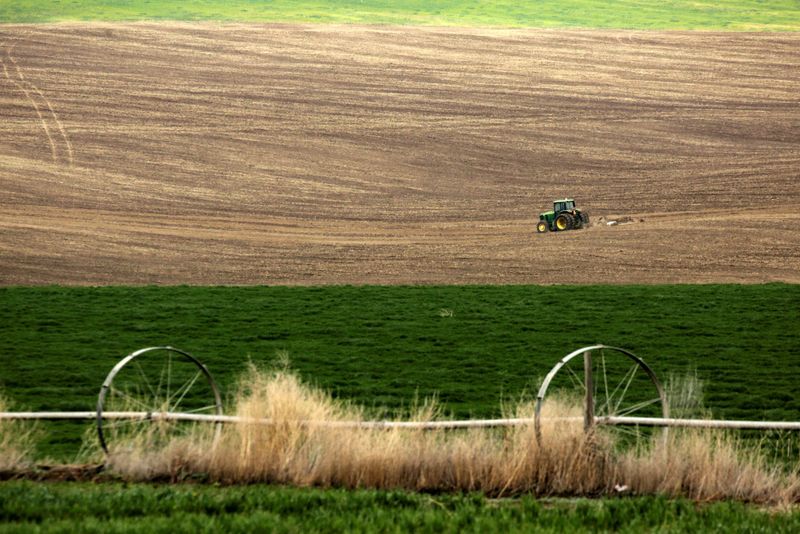By Leah Douglas
(Reuters) -Two senators are joining farm groups and other lawmakers in calling on the U.S. Department of Agriculture to allow farmers to plant conserved acres this spring in response to the Russian invasion of Ukraine.
Aid groups have warned that global hunger will rise this year as a result of disruptions to the planting season in Ukraine, a major grain exporter.
Republican Senators Marco Rubio from Florida and Cynthia Lummis from Wyoming sent a letter to Agriculture Secretary Tom Vilsack on March 31 calling on the USDA to allow farmers to plant acres enrolled in the Conservation Reserve Program (CRP) without penalty.
“Allowing crop production on CRP lands is a critical step for stabilizing food prices that have skyrocketed in recent months, and to help American growers fulfill the unmet global demand for grains that threatens the lives of tens of millions of people,” the senators wrote.
Senator John Boozman, a Republican from Arkansas and ranking member of the Senate Agriculture Committee, also asked the USDA in March to allow for CRP planting.
The USDA is opposed to the idea, according to a letter sent from Vilsack to the National Grain and Feed Association (NGFA) on March 31.
“Quickly converting (CRP) land to crop production is clearly unfeasible” and would have negative long-term consequences for the climate and land, the letter said.
Farm groups, including NGFA, called on Vilsack this month to allow farmers to plant on the more than 4 million acres (1.6 million hectares) of “prime farmland” currently enrolled in CRP. The program pays farmers to fallow acres under 10- or 15-year contracts. [L2N2VQ2R1]
Some economists and farmers have expressed skepticism about the idea, as some CRP land is environmentally sensitive.
High costs and scarce availability of fertilizer and other materials has also muted farmer interest in planting more acres. In an annual survey of planting intentions, farmers said they would be planting just 214,000 acres (86,603 hectares) more than in 2021, a 0.1% increase.
The European Union has already moved to allow farmers to plant on fallow land in response to the war in Ukraine and is distributing aid to help them do so. [L5N2VQ584]
(Reporting by Leah Douglas; additional reporting by Christopher Walljasper; Editing by Bill Berkrot and Marguerita Choy)
